By Louise Pettifer, Wellbeing and Play Expert at CONNETIX Tiles.
As modern-day parents in a fast-paced world often the summer holidays are filled with planned outings, activities and non-stop entertainment. If you’re feeling the pressure to keep boredom at bay and structure your schedule – keep these helpful tips in mind, so you can enjoy those purposefully slow moments and watch your children’s creativity, problem-solving and resilience grow in the process!
Making time for boredom has a multitude of benefits, though, even as adults, how often do we resort to doom scrolling? Like every new skill, sitting with uncomfortable feelings of boredom and seemingly feeling unproductive takes practice to strengthen and develop these essential skills. Setting aside time in your day, even starting with small steps and having helpful open-ended resources like CONNETIX magnetic tiles at hand will be a gamechanger these holidays, transforming “I’m bored” to “Look what I made!”
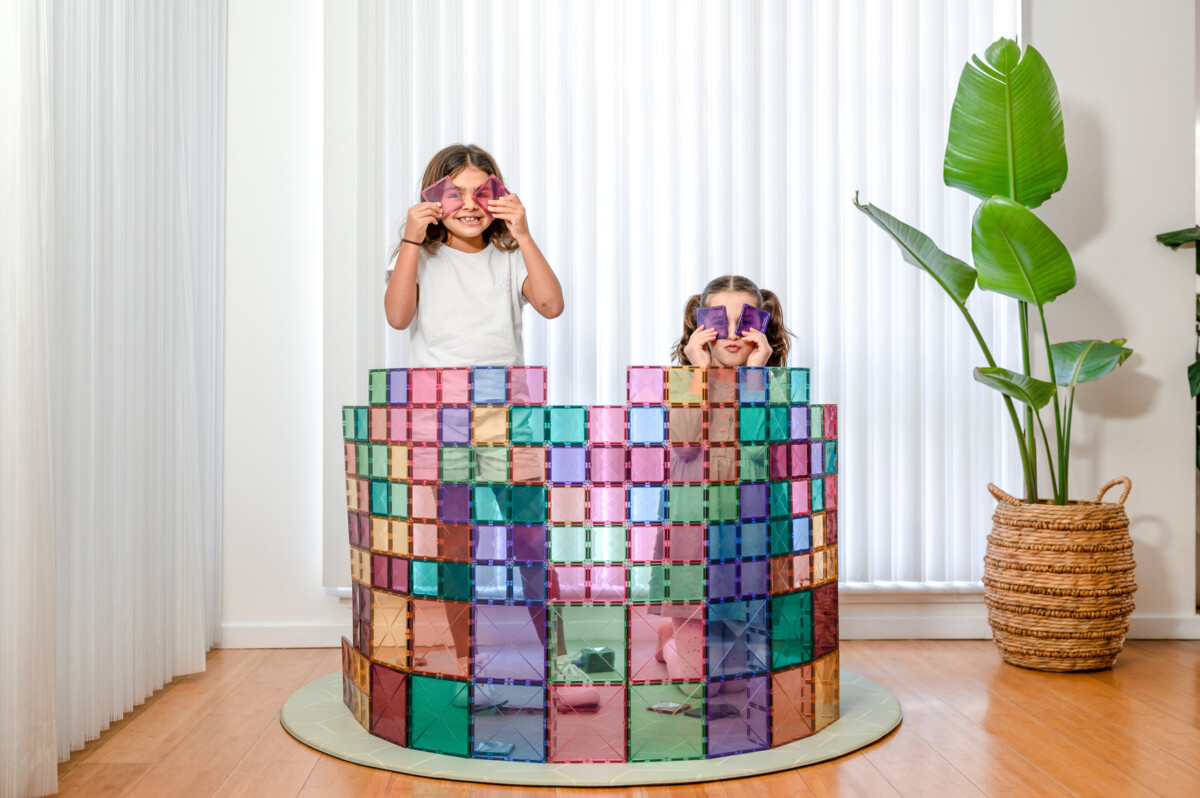
The Surprising Benefits of Boredom
As adults when we think back to our childhoods it’s usually filled with memories of playing spontaneously and freely, quite often outdoors and inventing games that were a by-product of having lots of time to create our own fun. These moments are when creativity flourishes best, thoughts wander into imagination and ideas are outside of the box. When children have space to tap into their inner strengths, resources and surroundings, the result is powerful – unleashing their natural curiosity and problem-solving abilities.
Practical tip: Without a doubt, children will express feeling bored over the holidays. The key is to try to resist the urge to move on to the next activity and allow children to initiate their own fun and play. Acknowledge their feeling, “I know, being bored can feel tough sometimes” and encourage them to explore their surroundings for ideas of what they can try. This is where open-ended toys and free play outside make a huge difference. Having a few resources like CONNETIX, figurines, craft and empty boxes will spark their creativity and endless ways to play.
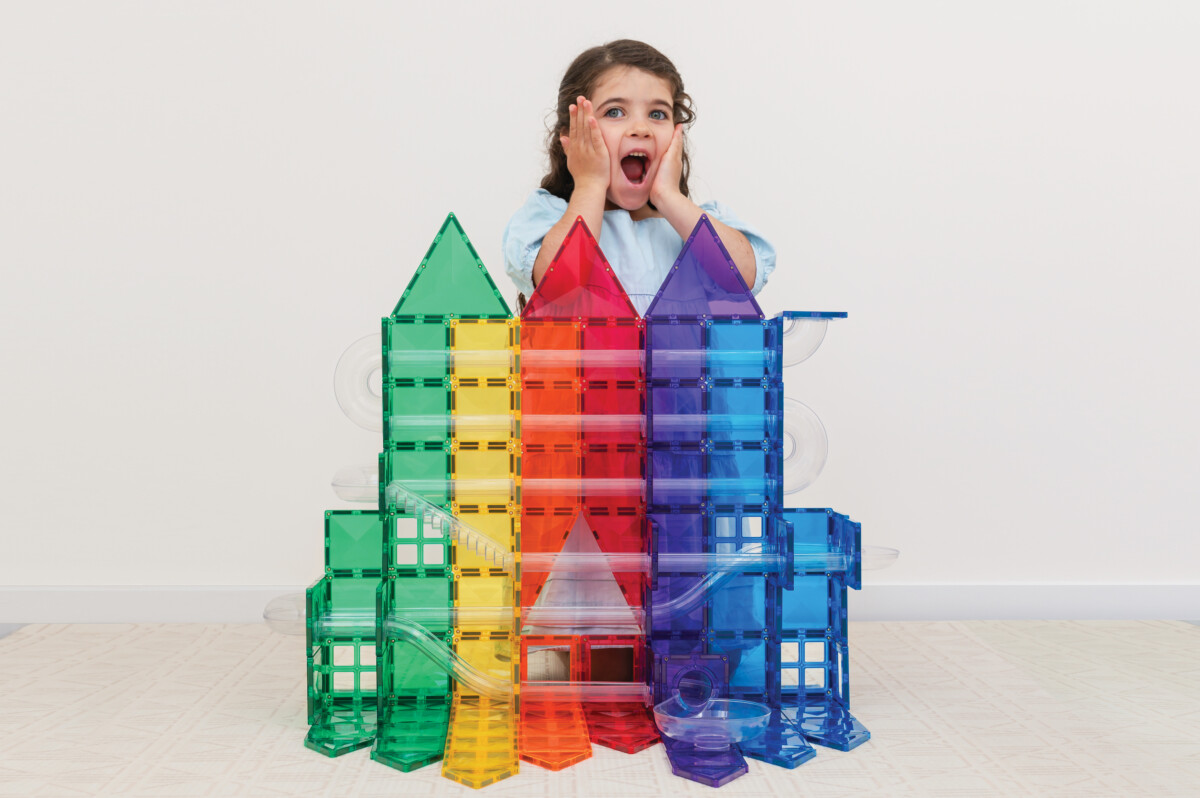
Why Less is Sometimes More
Over time our schedules have become busier, we’re exposed to more information and input than ever before. For children, this demand can lead to a heightened state of arousal and overstimulated nervous systems which can look like inattention, hyper-activity, sleep disruptions, behavioural challenges and more. Having regular downtime, with no external demands or structure, allowing kids to just be kids, is essential for their healthy development and wellbeing. Think of these times as brain-boosting moments and a body reset.
Practical tip: Set aside time each day to just be. Talk to your children about the importance of quiet, restful time and together come up with a special name for this time that works for your family. This can be a really great opportunity to role model self-care to your children too. It might look like laying down on the trampoline outside to gaze at the sky, closing your eyes while sitting on the floor or perhaps creating something with clay or CONNETIX.
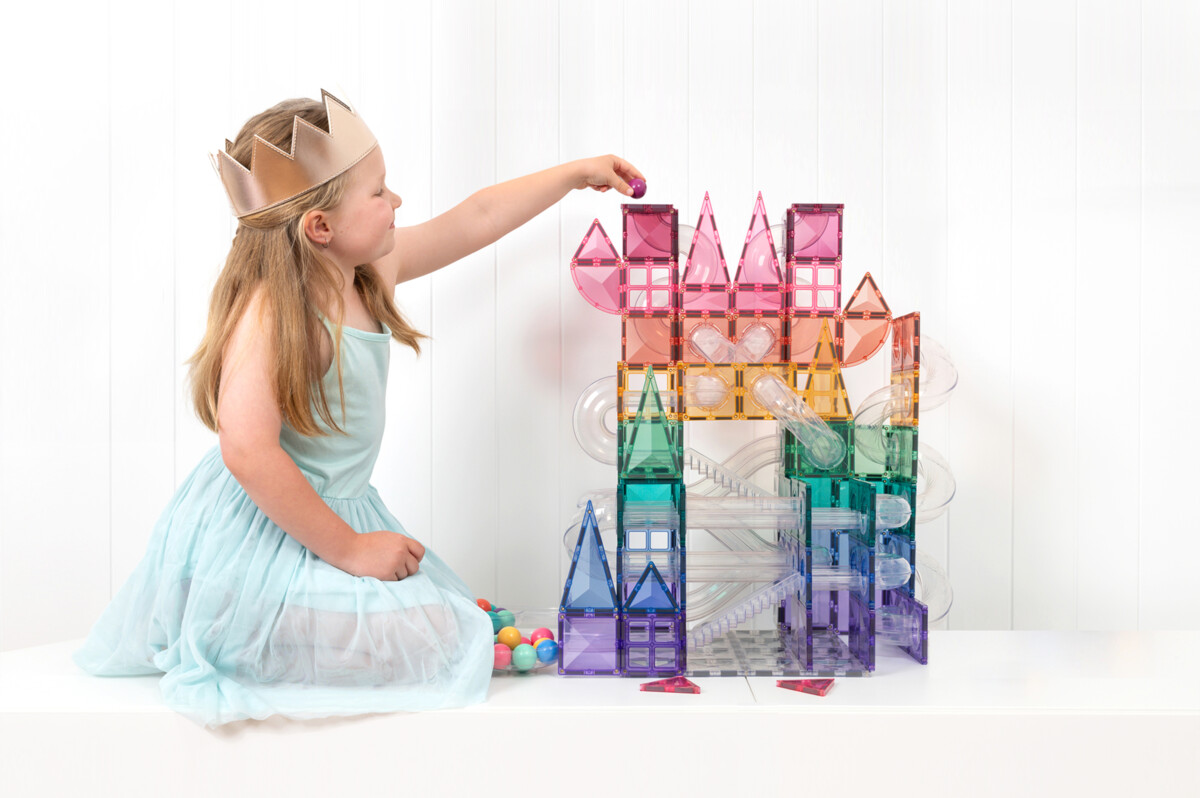
The Power of Open-Ended Play
When children are provided opportunities to play without any agenda or set instructions, this is where the magic happens. Children are natural explorers and have an innate curiosity to discover how the world works; through hands-on play and trial-and-error this is how they learn best. Open-ended toys give children the freedom to explore, to discover their potential and build important cognitive skills like creativity, imagination, critical thinking, problem solving, and the list goes on! The best part? Children of all ages can benefit from open-ended play, and with so much versatility, every child can play in ways that interest them and is unique to their individual needs.
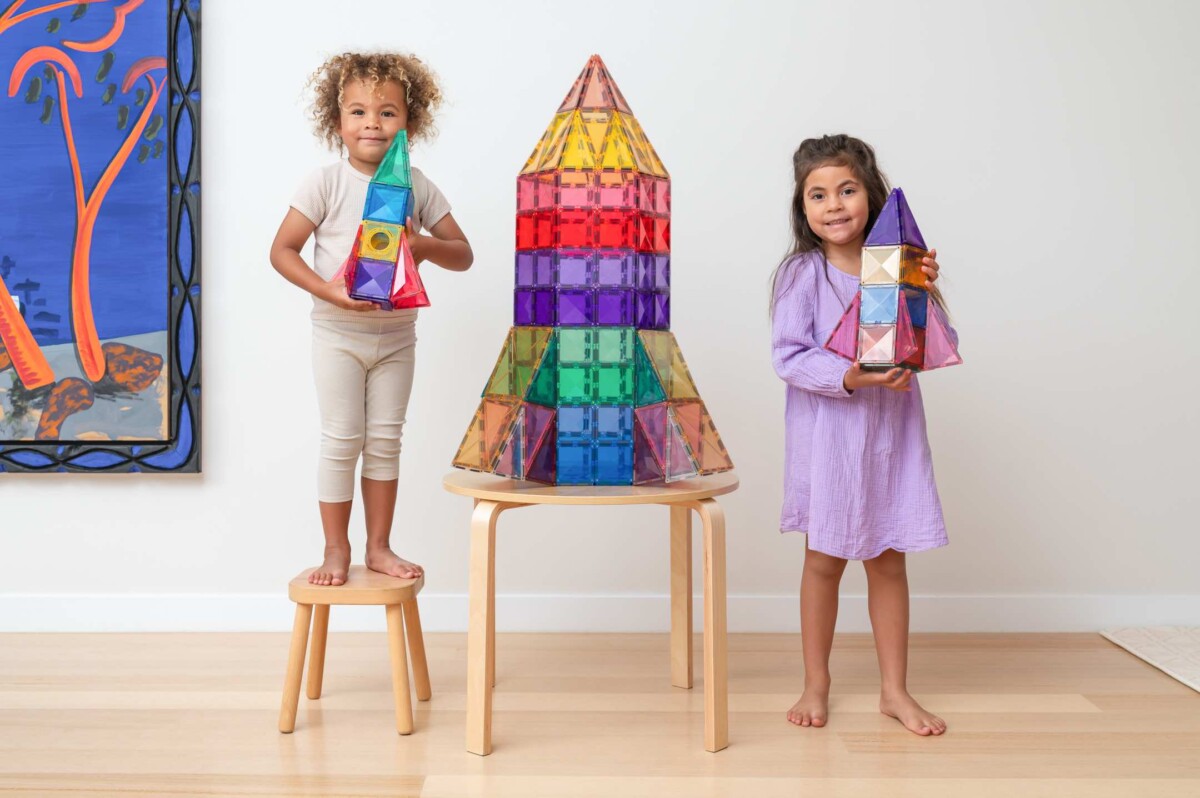
Where Boredom Meets Resilience
While boredom can be frustrating and uncomfortable, it’s a valuable skill for children to experience these moments to overcome life’s inevitable challenges and adapt to their environment. When children have the space to work through their discomfort and practice perseverance during trying times, this builds their sense of self-esteem and confidence that they can do hard things. Each time they are met with a hurdle and successfully overcome it, their resilience grows, and is applied across all areas of life, even into adulthood!
Practical tip: As a parent, I know how difficult it can be to see our children face challenges and uncomfortable emotions. Remember, all emotions, even boredom, are important to their growth and resilience. Try not to fix or take away these feelings, instead practice sitting with them through it and naming how they’re feeling. “I can see you’re bored, that can feel so hard sometimes.” Show confidence that they’ve got this and can manage their emotions.
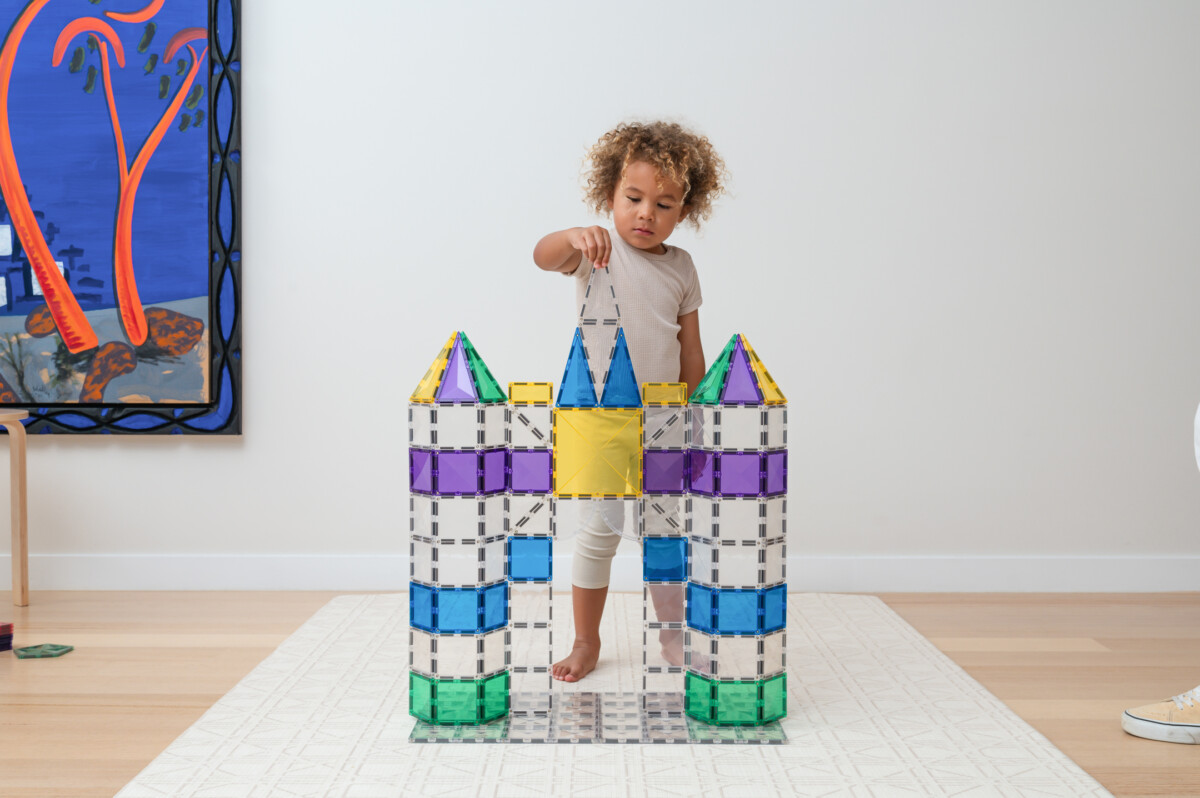
How Boredom Builds Teamwork and Collaboration
Sibling conflict is often one of the most trying parts of the school holidays, and as parents, it can feel exhausting having to referee all the time. The good news is sibling conflict is totally normal and a healthy part of development that teaches skills like negotiation, empathy and turn-taking. When children are bored, this can encourage them to play together by inventing games, using pretend play and role playing different real-life scenarios like going to the shops or playing teachers. These moments not only strengthen sibling relationships but also lifelong teamwork and social skills.
Practical tip: Set up a team building challenge with CONNETIX. Lay some simple ground rules about playing together and keep it positive. When conflict arises, see if they can resolve it independently or if needed, provide commentary like a spectator to help each child understand one another’s perspective. Building empathy in the situation is a powerful tool to resolving conflict.
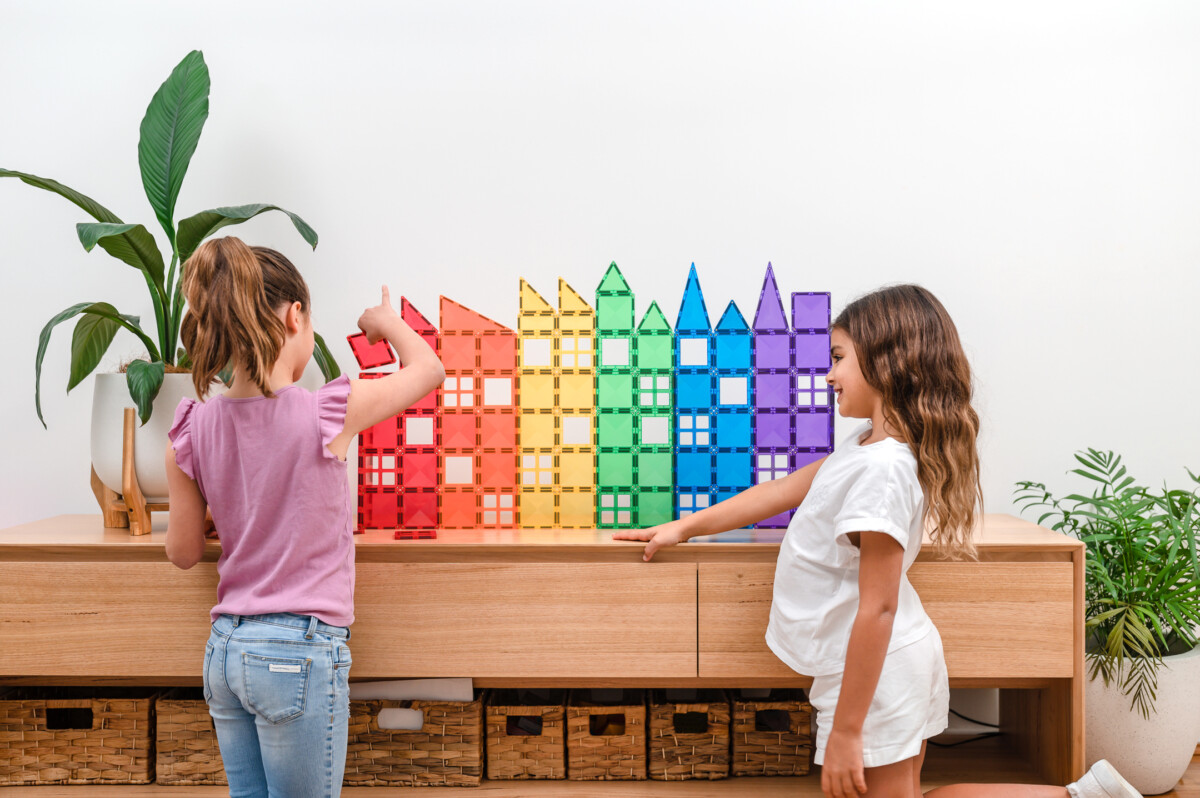
About the expert
 Louise Pettifer is the Wellbeing and Play Expert at CONNETIX. With a degree in psychology and extensive experience working with families in the community services and education sector, Louise is passionate about nurturing childhood development and wellbeing, and supporting parents, educators and allied health professionals to better understand the benefits of play in raising emotionally intelligent children. Louise is mum to a little girl. Learn more about CONNETIX Tiles at www.connetixtiles.com
Louise Pettifer is the Wellbeing and Play Expert at CONNETIX. With a degree in psychology and extensive experience working with families in the community services and education sector, Louise is passionate about nurturing childhood development and wellbeing, and supporting parents, educators and allied health professionals to better understand the benefits of play in raising emotionally intelligent children. Louise is mum to a little girl. Learn more about CONNETIX Tiles at www.connetixtiles.com


